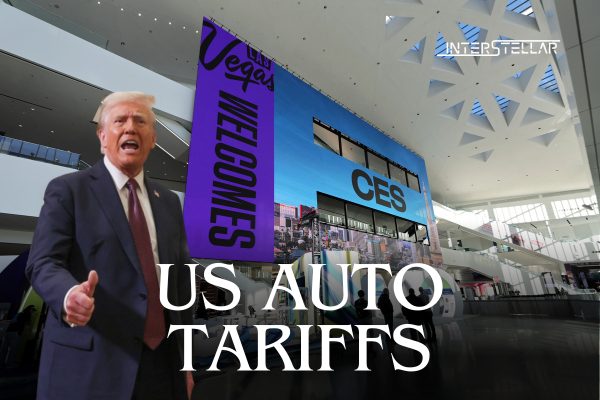Global Auto Industry Rethink Strategies Amid Tariff Concerns
The Global Auto Industry is reassessing its production strategies as they brace for significant tariff increases under President-elect Donald Trump. Speaking at CES in Las Vegas, industry leaders expressed concern over the potential impact of sweeping import tariffs, including a 10% blanket tariff on global imports and a 60% tariff on Chinese goods. Trump has also pledged a 25% tariff on imports from Canada and Mexico, further complicating trade relations.
Tariff Concerns Spur Localisation Efforts
The auto industry has already faced years of US protectionism, from tariff threats during Trump’s first term to additional measures under President Joe Biden. While Biden’s Inflation Reduction Act (IRA) incentivised localisation, Trump’s proposed tariffs could force suppliers to move production closer to the US to remain competitive.
Bosch, the world’s largest car parts supplier, has begun exploring alternatives to mitigate potential tariffs. Paul Thomas, Bosch’s North American president, highlighted the company’s focus on shifting production from markets like Malaysia to locations such as Mexico or Brazil. However, Bosch and other companies are waiting for further clarity after Trump’s inauguration on January 20.
Suppliers like Continental are also looking at localising their supply chains. Continental CEO Nikolai Setzer explained the company’s efforts to source alternative components in North America, a strategy aimed at minimising the impact of tariffs.
Lessons from Past Protectionism
The Trump administration’s previous use of tariffs as leverage led many automakers and suppliers to prioritise localisation. For example, in 2017, Trump’s criticism of Toyota’s plans to manufacture the Corolla in Mexico prompted the automaker to shift production to a $1.6 billion plant in Alabama.
The coronavirus pandemic and supply chain disruptions further emphasised the need for localisation. Biden’s IRA reinforced this trend by encouraging investments in US-based manufacturing, particularly in the electric vehicle (EV) sector. However, Trump’s return to office could undo parts of the IRA, presenting new challenges for automakers and suppliers.
EV Supply Chains Under Pressure
The potential tariffs on Chinese goods are accelerating efforts to eliminate Chinese components from US supply chains, particularly in the EV market. Panasonic Energy, a key battery supplier for Tesla, has been actively reducing its reliance on Chinese materials. The company’s North American president, Allan Swan, emphasised plans to remove all Chinese content from US-made batteries, calling it their “No. 1 objective.”
Other suppliers, including Novonix and Nouveau Monde Graphite, are stepping up to fill the gap as the industry shifts towards more localised and diversified supply chains.
What Lies Ahead?
If Trump’s tariffs materialise, the global auto industry may face increased costs and supply chain disruptions. Companies are already exploring alternatives, but the ultimate impact will depend on the final policy measures introduced after January 20. For now, automakers and suppliers remain in a holding pattern, preparing for the challenges ahead.
with inputs from Reuters





